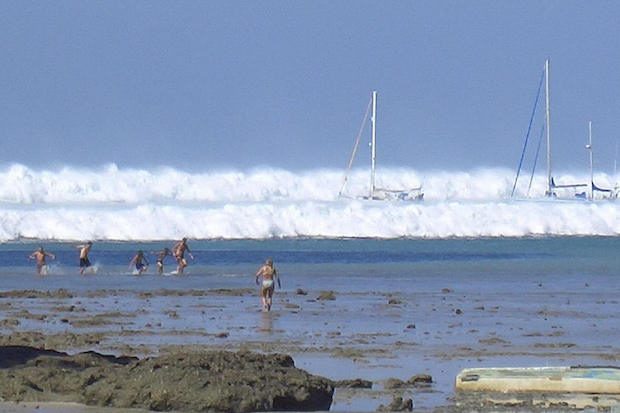It is hard to know how a tragedy is going to move a person who is not directly affected by it. Over a death or misfortune in the family, or among one’s friends, one is sure to feel pain and grief. But what of those other ghastly events involving people, maybe hundreds or thousands of them, with whom one has no connection? They provoke shock, disgust and horror, but not necessarily great personal sadness. Could it be true that I was more depressed when a fox killed all my chickens than I was when the Indian Ocean tsunami of 2004 swept over a quarter of a million people to their deaths? I have an ugly, shameful feeling that I might have been.
Perhaps I am uniquely unimaginative and lacking in empathy, but I fear not. It is a harsh fact of life that most people do not truly feel the sufferings or losses of people in situations in which they cannot imagine themselves. Worse than that, they tend to be mainly thankful that such situations did not or could not involve them. Take Ebola in Africa or the Fukushima nuclear disaster in Japan as examples of this. But the closer a tragedy is to home, and the more we can identify with the victims, the greater the emotional response is likely to be.
The greater sorrow felt here over the beheadings of western hostages by Islamic State fanatics than over the deaths of many thousands of victims of the fighting in Syria was due not only to the hideous, gloating barbarity of the beheadings themselves but also to the fact that we could just about imagine ourselves in the hostages’ shoes. We could even imagine that we might have been in the Twin Towers in New York when they were struck by those planes on 9/11, resulting in those awful television pictures of people leaping from a vast height to certain death on the street below.
Still, affected as I was by these events, I was amazed to find that the emotional impact they had on me was greatly exceeded by that of the dreadful fate of the passengers on the Germanwings Airbus that crashed into a French mountainside last week. Even before we learnt that it was a deliberate decision by the co-pilot, Andreas Lubitz, to take 149 other people with him on his demented suicide mission, it filled me with genuine depression.
And this wasn’t just because I thought that I could have been among them. Though I take an aeroplane every now and then, I couldn’t imagine ever being on a flight from Spain to Düsseldorf. Also, such aeroplane catastrophes are so rare, especially in Europe, that the chances of such a thing happening to me are minuscule. Flying remains one of the safest ways to travel.
But the eight-minute descent, the screams on the flight recorder as the passengers realised what was happening, the sheer, pointless cruelty of what was being done to them and to their families, all aroused in me feelings of sorrow and compassion that I had begun to fear I lacked in such circumstances; and none of it had anything to do with the fact that there were Britons among the people on board. I suppose I am a little bit grateful to have discovered that I am not always completely heartless.
The news that for the first time ever there now appears to be a minority in Britain in favour of the death penalty would gladden the heart of Ian Gilmour, the former owner and editor of The Spectator. The annual NatCen British Social Attitudes report has found that support for capital punishment has fallen to 48 per cent, whereas in 1983, when the survey began, 75 per cent of people were in favour of it. During the editorship of Lord Gilmour between 1954 and 1959, this magazine campaigned relentlessly against the death penalty, even though public opinion was overwhelmingly in favour of it. It was nevertheless effectively abolished in 1965, one year after the last executions in Britain, when MPs voted 200 to 98 to suspend it for murder. It was abolished by law in 1998. Lord Gilmour was ahead of his time, but public opinion is finally catching up with him.






Comments